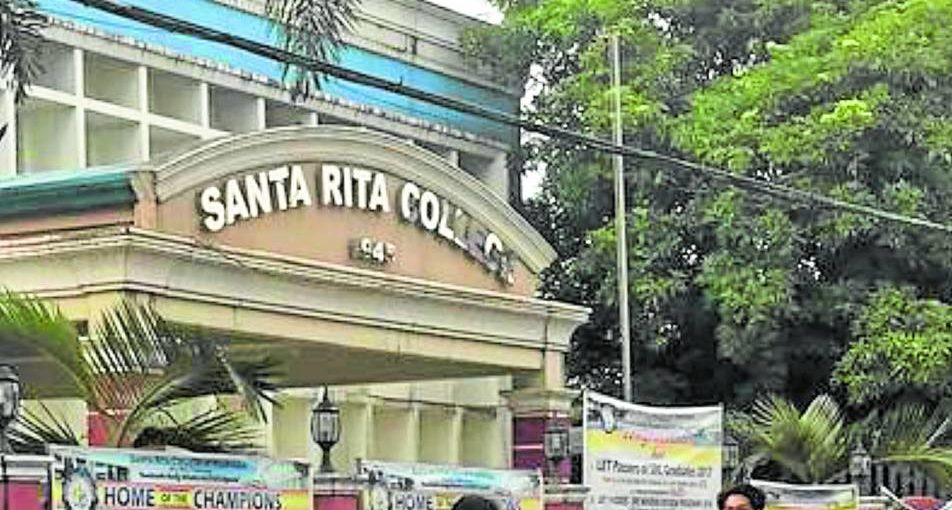
IN DIRE SITUATION Santa Rita College in Santa Rita, Pampanga, as seen in this photo taken in 2013, supports mostly students who are enrolled through the government’s Tertiary Education Subsidy, which has not been paid since 2021. —PHOTO FROM SANTA RITA COLLEGE FACEBOOK
SANTA RITA, PAMPANGA—The Commission on Higher Education (CHEd) has yet to release P82.080 million in Tertiary Education Subsidy (TES) to 2,736 grantees at Santa Rita College (SRC) here since 2021, or even before Congress gave zero budget to the same grant this year, reflecting the plight of other private colleges nationwide.
In a statement on Thursday, Dr. Bienvenida Alvaro, SRC executive vice president, revealed the TES coming from CHEd for their new grantees stopped, particularly for first and second year students for academic years (AYs) 2021-2022 and 2022-2023.
The TES amounts to a maximum of P60,000 yearly for every qualified student under Republic Act No. 10931, or the Universal Access to Quality Tertiary Education Act (UAQTEA) of 2017, Alvaro said.
The amount being claimed by SRC’s TES beneficiaries would still have to be verified, said Ryan Estevez, executive director of CHEd’s Unified Student Financial Assistance System for Tertiary Education (UniFAST), in a phone interview on Friday.
Budget cut
Asked about the total cost of TES being asked by private schools in areas with no state or local government-run universities and colleges, Estevez said these came in “varying amounts under continuing payments.”
He admitted the CHEd has been unable to have new grantees for AYs 2021-2022 and 2022-2023 “due to the huge cuts in the UAQTEA budget under CHEd, coupled with the continuous increase of students enrolling in SUCs (state universities and colleges) and CHEd-recognized LUCs (local universities and colleges).”
Alvaro said SRC “accepted” first and second year TES recipients in the last two academic years because no memorandum or set of guidelines was issued stopping new grants.
She said the delays in payments were expected because previous reimbursements for TES were released after one to three semesters.
However, Estevez said it was “wrong” for private universities and colleges to accept new grantees when school officials and students were told during orientation that the TES was “subject to availability of funds.”
Reimbursement
In a phone interview, Alvaro said SRC has not advised TES-aided students to stop schooling and instead encouraged their parents to “shoulder the tuition and miscellaneous fees [in] the meantime with the assurance that any amount paid will be reimbursed [as] soon as there will be a budget and releases from CHEd/UniFAST.”
SRC, she further said, was ready to accept the “most reasonable terms [the parents] can afford” to guarantee the continuation of their children’s studies.
Alvaro said SRC, founded 78 years ago, charges between P15,000 and P17,000 in tuition every semester. The balance is given to TES recipients.
According to her, the nonpayment of TES has “adversely affected the financial position of the school, as experienced by other private higher educational institutions” where there are no SUCs or LUCs.
“We can only commit to providing TES to continuing TES beneficiaries for the academic year 2022-2023,” CHEd Chair Prospero de Vera had told the House Appropriations panel in September 2022 after the commission failed to secure additional funding for its 2023 budget.